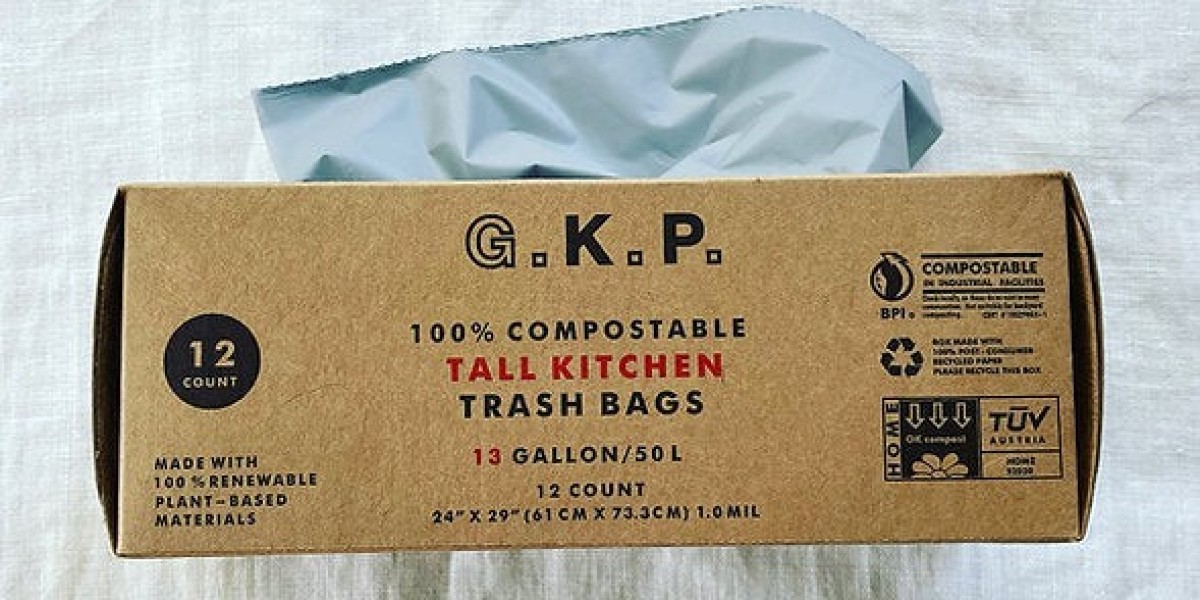Sustainability doesn't always mean grand gestures like installing solar panels or going completely off-grid. Sometimes, it's the small, thoughtful choices in our daily routines that can make the biggest impact. If you're looking to start reducing waste at home, simple tools like compostable trash bags and a brush for vegetables are easy and effective places to begin.
These eco-friendly items not only help reduce plastic use but also encourage healthier habits—both for you and the planet. Let’s explore how these two tools can become everyday essentials in a more conscious lifestyle.
The Hidden Problem with Traditional Trash Bags
Every time we throw something away, we usually don’t think much about the trash bag it goes into. But those black or white plastic bags—used once and tossed—can linger in landfills for hundreds of years. Even though they’re just “containers for waste,” they are a massive source of long-term pollution.
Most traditional trash bags are made from polyethylene, a type of plastic derived from fossil fuels. These materials don’t break down easily and often contribute to microplastic pollution when they do.
What Are Compostable Trash Bags?
Compostable trash bags are a greener alternative to conventional plastic garbage bags. They’re made from natural materials such as cornstarch, plant starches, or other biodegradable polymers designed to break down in composting conditions.
Unlike biodegradable bags—which may still leave behind plastic fragments—compostable bags are designed to fully decompose into organic matter, leaving no toxic residue behind.
Key Features of Compostable Trash Bags:
Made from renewable plant-based materials
Break down in industrial or home compost systems
Free from petroleum-based plastics
Leave no microplastics behind
It’s important to note that compostable bags are most effective when used in actual composting conditions. For best results, look for certifications such as BPI Certified Compostable or EN 13432 to ensure they meet environmental standards.
When Should You Use Compostable Trash Bags?
While not every type of waste is suited for composting, there are still plenty of scenarios where compostable bags are ideal:
Collecting kitchen scraps for backyard or curbside compost bins
Managing green waste like garden clippings or food-soiled paper
Pet waste disposal when using home-compostable pet systems
Small waste bins in the bathroom or office, where contents are minimal
By choosing compostable bags for appropriate waste streams, you’re reducing reliance on plastic while supporting a more circular, earth-friendly waste system.
Benefits of Compostable Trash Bags
Switching to compostable bags is a small change that creates a ripple effect. Here’s why more households are making the switch:
Reduce plastic waste
Compostable bags break down faster and more safely than conventional plastic, reducing long-term environmental impact.Support composting habits
They’re especially helpful for collecting organic waste like food scraps, making composting easier and cleaner.Healthier materials
Most compostable bags are free from artificial dyes, fragrances, and plasticizers, making them safer for handling and disposal.More sustainable production
Plant-based materials often require fewer resources and produce lower emissions during manufacturing than fossil fuel-derived plastic.
The Overlooked Kitchen Tool: The Brush for Vegetables
Now, let’s turn to a tool that might not get enough credit in your kitchen—the vegetable brush. Whether you buy organic produce or not, a good brush for vegetables is a smart and sustainable addition to your daily cooking routine.
Instead of peeling off the skins of carrots, potatoes, or apples (and discarding fiber and nutrients), you can scrub them clean and enjoy the full benefit of the food—waste-free.






